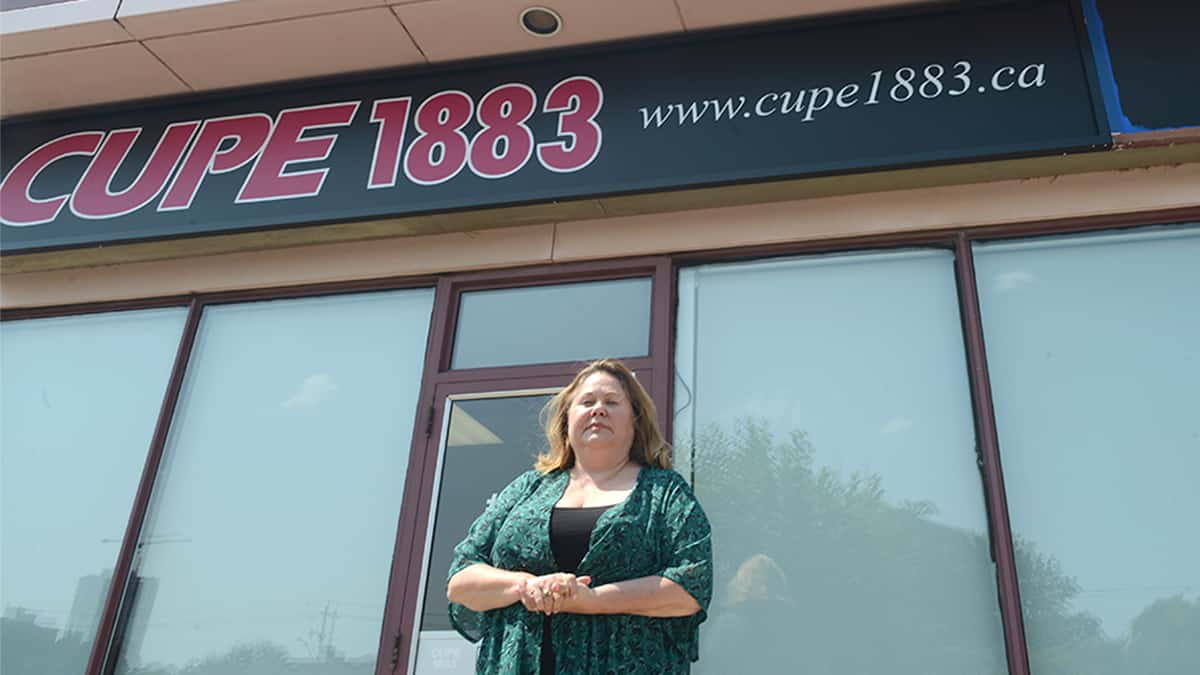Some 1,200 Region of Waterloo workers, including paramedics, will be in a strike position at week’s end as contract talks have stalled between the union and the region.
Canadian Union of Public Employees (CUPE) Locals 1883 and 5191 filed a “no-board” application June 30, setting in motion a 17-day countdown to a strike or lockout. A no-board report is filed by a conciliator if the process of conciliation fails between the two sides.
CUPE 1883 represents about 900 workers in public health, childcare, social services, finance, IT, housing, administration, museums, libraries, bylaw enforcement, engineering, airport, landfill, and transportation.
CUPE 5191 represents about 300 paramedics and logistics staff.
Among the issues was the region’s decision last year to close five childcare facilities, including Elmira Children’s Centre, in an effort to cover a $25-million shortfall in the region’s 2021 budget.
“The Region of Waterloo doesn’t seem to care for the services we provide. They voted to close all five of the childcare centres they operate. These were the only centres that were open for essential workers to have care for their children when all others were closed. Their decision will leave over 200 parents stranded while laying off 80 childcare workers,” said CUPE 1883 president Noelle Fletcher.
The union is calling for their employer to address higher workloads, poor workplace morale and lack of mental health supports.
CUPE 5191 says paramedic members are feeling burnt out after stepping up for the community over the last year and a half, they have worked nonstop with little support from their employer. The paramedics would like to see improvements made to paid sick days, and compensation on par with neighbouring municipalities.
“The Region of Waterloo has shown little interest in negotiating with us,” said Luke McCann, president of CUPE 5191 and an active paramedic.
“We feel grateful for the opportunity to serve our communities and want to continue working. All we are looking for is the respect of the employer in recognizing the value of our workforce. We deserve a fair deal.”
Fletcher said It was clear that the two sides were nowhere near conciliation in April this year.
“At that time, a conciliator was assigned, and we bargained one more day with the conciliator and one without, and unfortunately at that time it was clear that we were nowhere near coming to a deal so that’s why we are in the process of filing a no-board,” said Fletcher.
“It is not about money. Everyone always assumes when a union goes on strike it’s about money – we have never even spoke about monetary issues. This is about job security, being treated fairly, mental health initiatives and coverage. We know that mental health crisis is at an all-time high. We are looking at some improvements and initiatives there for our members.”
Fletcher said she wants the community to know that CUPE 1883 and 5191 would prefer not to strike but have been left with few options.
“We really want to bargain. We do not want to go on strike – it’s the last thing we want to do. We just want the region to commit to bargaining with us and our sister union 5191 too; we’re basically experiencing the same thing.
“We have over 900 members. Our members are throughout the entire region, so we have public health, we have housing, we have social services, we have finance, we have I.T., we have people at GRT, we have the call centre, we have water, we have landfill, we have libraries, we have museums – we are basically inside workers throughout the entire region. We cover almost everything,” noted Fletcher, speaking about the Local 1883 members.
“This has never really happened with us in bargaining before, especially the lack of bargaining dates and I do want to stress to the community we don’t want to go on strike, but we are at a place where the Region of Waterloo filed for reconciliation and unfortunately this is the next step. So were hoping it brings them to the table,” she said.
“The problem is when you file a no-board it starts a 17-day period, and at the end of the 17 days were in a strike position. We’d like to bargain before then and we’d like to see 5191 bargain before then.”
CUPE 1883 and 5191 filed the no-board together to add pressure on the region to negotiate with them. Fletcher said that the members of her local are largely concerned about job security, lack of investment in mental health and looming layoffs as the region continues to cut services.
The region has largely avoided addressing the standoff, not responding to inquiries. It did issue a statement on Monday.
“As negotiations continue with CUPE Local 1883 and CUPE Local 5191, the Region of Waterloo remains fully committed to reaching an agreement with both unions.
“We value the critical work of all of our staff and our relationships with all bargaining units. These partnerships are key to enable region staff to deliver essential services and exceptional customer experiences for every resident in the community.
“In accordance with the Ambulance Services Collective Bargaining Act, an Essential Services Agreement must be in place with CUPE 5191 so that emergency services will be maintained in the event of a strike.”









